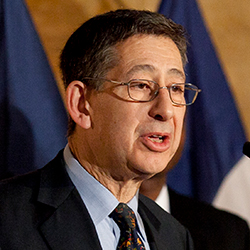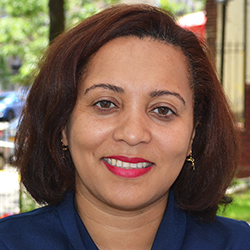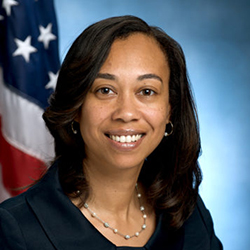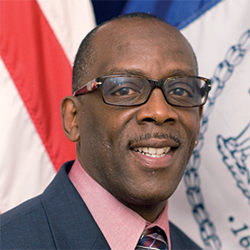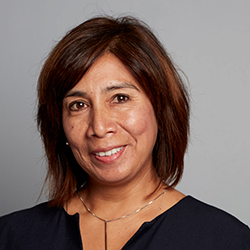For many this year, Labor Day will serve as a reminder of the gains for workers that have been achieved over the decades. Here in New York, the labor movement has notched some noteworthy victories recent years as well. Last year, Gov. Andrew Cuomo spearheaded successful campaigns for a $15 minimum wage and a 12-week paid family leave policy. This year, the governor included a measure in the state budget allowing workers to deduct union dues from their state taxes, and at the end of session he reached a compromise with lawmakers on a union-backed “Buy American” law. And for unionized public sector workers, the recovering economy has paved the way for more generous labor contracts.
Looking ahead, city and state lawmakers are expressing optimism that they’ll be able to advance legislation to protect farmworkers, provide more resources for child care and ensure safe conditions for construction workers.
However, storm clouds are looming on the horizon. The right-to-work movement is picking up steam in states that were once bastions of organized labor. While New York remains a union stronghold, a case before the U.S. Supreme Court would weaken labor unions across the country. Many union leaders fear that New York could face its own labor crisis – if voters agree this fall to a constitutional convention – and labor foes capitalize on the chance to erase protections, such as a right to collective bargaining.
City & State spoke with five New York labor officials – Bob Linn, comissioner of the New York City Office of Labor Relations; Marisol Alcantara, chairwoman of the state Senate Labor Committe; Michele Titus, chairwoman of the Assembly Labor Committee; I. Daneek Miller, chairman of the New York City Council Committee on Civil Service and Labor and Lorelei Salas, comissioner of the New York City Department of Consumer Affairs – to discuss the status of existing labor laws and what the future holds for New York's workforce.
RELATED: Labor is on the defensive in 2017
Bob Linn
Commissioner, New York City Office of Labor Relations
C&S: Is President Donald Trump’s administration having an effect on organized labor in New York? If so, what?
BL: From New York City’s vantage point, we are continuing with the labor relations process that we’ve been doing for the entire administration. So we’ve been solving labor problems as they come before us. We’ve settled 99.6 percent of our labor negotiations. We have 144 bargaining units and (more than) 350,000 workers in collective bargaining, and we’ve now settled 99.6 percent of that group. And we continue on our labor settlements and we continue looking at health benefits and for ways of finding health savings and ways to make health more effective and more efficient.
We clearly have to be mindful of what might happen in D.C., and so I think that we need to be conservative in our approach to our bargaining, but so far we’ve been continuing to do the things that we’ve been doing throughout the administration.
C&S: The Patrolmen’s Benevolent Association contract has expired, and District Council 37’s expires in September. What’s the status of those negotiations? Are you waiting on the federal budget to negotiate, or are you trying to get this done quickly?
BL: We’ve not been waiting. We’ve had meetings with the PBA; we’ve had bargaining sessions with the PBA. We’ve had initial conversations with DC 37, and we are exploring ways of going forward. We inherited every labor agreement expired by at least three years, some cases, five years. And I don’t think that is a good way to have your collective bargaining structure in place. You should be bargaining timely and you should be solving contracts as they expire. So we are intending to move forward in a timely basis with our collective bargaining.
C&S: In 2016, you said the city was on track to reach $3.4 billion in health care savings through de Blasio’s first four years. Are you still on track?
BL: Yes. The final year of the savings is fiscal ’18, so we are now just having begun fiscal ’18. We are not only on track, we have agreements for all the changes in our program necessary in order to get the full $3.4 billion over the four-year period.
C&S: You switched things up last year, trying to incentivize city employees to focus more on preventative health care services and less on emergency room visits. Has that been effective?
BL: It has indeed been effective for savings. We increased the charge substantially for using the emergency room while we have lowered the cost of visiting your primary care physician. We had exactly that impact, and last year we’ve had a dramatic (10 percent) reduction in the use of emergency rooms and increased utilization by primary care physicians.
Nationally, health benefit increases have been at about 7 percent per year on average around the nation. We have reduced our increases in health care costs to 4 percent. That is a pretty dramatic moderation of the cost of health care increases in comparison to other employers nationwide.
C&S: You said you took the job because it was exciting to find solutions to the very complex problem of expired labor contracts. Now that it’s all settled and the first term is coming to an end, is it still exciting?
BL: Indeed it is very exciting. One of the things that was most exciting about taking the job was in an article that Steve Greenhouse wrote in the New York Times where he quoted all sorts of people saying how difficult, if not impossible, it would be for the new administration to settle all the outstanding labor agreements and to do it in a way that would maintain labor peace. I think we’ve accomplished exactly that. We’ve had contracts ratified by very high percentages of the workforce. We’ve worked our way through a number of complex matters, and we have reached solutions. You can’t have a greater feeling of accomplishment than sitting down at a table and reaching a voluntary agreement with the people on the other side of the table and reaching an agreement that both sides say, boy, this has really solved our mutual problems in a way that we both can live with and in a way that yields very high ratification votes by the membership. So it has been very good.
C&S: Do you plan to stay on for the next term?
BL: I plan to try to and move forward in the next round of bargaining and hopefully will be with the city making some new agreements as we move into the next round.
RELATED: Comparing public and private sector salaries in New York
Marisol Alcantara
Chairwoman, state Senate Labor Committee
C&S: Is there any legislation being considered in the next legislative session that you believe would benefit New York workers?
MA: Something that is very dear and near to my heart is that I hope in this session we can finally pass some legislation that can help farmworkers in the state of New York. There are 125,000 farmworkers in the state of New York, that are mostly immigrants, that don't have any labor protection whatsoever.
C&S: Last month, the Transport Workers Union released a plan proposing fixes to the New York subway system. What obligation does the TWU have to assist in mitigating New York City’s transit crisis?
MA: My mom is a former transit worker. I think that what happens is that we have a bunch of people in the MTA, people that are the bosses in suits making the decisions. Many times we don’t take the input that the workers have, the people that are actually are the boots on the ground that are doing the work. I don’t think a 1 percent tax on people that make a certain amount of money is enough to fix the transit system. We need to come up with other ways. The transit work of the MTA has been understaffed for many years. According to John Samuelsen from Local 100, they need about 2,500 workers to do the work that we need. This is a transit system that runs seven days a week, 24 hours a day, so we need to invest more resources into not only updating our system, but hiring the workers that can do this. The MTA board has the responsibility to sit down with our workers.
C&S: Many labor unions are strongly opposed to a constitutional convention. What are your thoughts on a possible con-con?
MA: The constitutional convention is something that all of us that are trade unionists believe would take away things such as pensions for state workers, our transit workers, our city workers. Many of our protections that we have in terms of environmental issues can be undone if we have a constitutional convention. So, my mom retired, and just like my mom there are thousands of older state workers whose salary and pension could be at stake if we hold a constitutional convention.
Michele Titus
Chairwoman, Assembly Labor Committee
C&S: Do you believe the state has done enough to increase wages for workers?
MT: Fair and equitable wages for workers has always been the one of the highest priorities of the Assembly. The increase in minimum wage in the 2016-2017 state budget was the result of significant work between important stakeholders and legislative leaders to meet the needs of workers across the state. Looking ahead, we will continue to prioritize adequate pay for workers, particularly in regards to fair wages, prevailing wages, pay equity and reducing the equal pay gap in order to continue to raise the standard of living for working families and reduce inequality.
C&S: What do you believe is the greatest challenge to passing legislation that aids working New Yorkers?
MT: The availability and accessibility of child care is a major concern. The Assembly has consistently fought for high-quality child care for working families across this state and will not let up the fight. Women in New York state only receive $0.89 for every dollar earned by their male counterparts, a figure that drops significantly for women of color, which leads to diminished economic stability and security for our families. The Assembly is committed to fighting for New York’s families and ensuring that no opportunity is diminished based on gender or race.
C&S: In an era of declining union membership across the country, how do you and the Committee on Labor work to support union members in the state?
MT: The Assembly Committee on Labor works to protect workers’ rights, ensure safe work environments, adequate wages and equal pay, institute anti-discrimination measures and provide important services such as paid family leave. Many of these goals are shared goals with unions across the state. For this reason, we work closely with union representatives to better understand the needs of workers across various industries and gain a comprehensive understanding of which policy changes may be necessary to improve the lives of workers and their families.
RELATED: Comparing Cuomo and Trump's 'Buy American' plans
I. Daneek Miller
Chairman, New York City Council Committee on Civil Service and Labor
C&S: Is President Donald Trump’s administration having an effect on organized labor in New York? If so, how?
DM: Certainly the lack of funding … Certainly what we’ve seen and what’s been told, it definitely would have a negative impact on the city of New York and the services people live with in terms of the federal government as well as – we actually did a hearing in March and we talked about the impact of the Trump administration as it pertains to the budget of the city. The Department of Labor’s budget has been reduced somewhere around $70 million to $75 million. Workforce development training, skills programs and so forth – if that is reduced, then the number of folks that are able to train and upgrade their skill set (will be reduced) … I would submit that just about every agency that depends on federal dollars will see a reduction. But some have already begun to see that. And that’s problematic, certainly. I would think that the worst is yet to come when we start talking about school vouchers as it relates to education, public safety, health care and things like that – things that are higher priorities.
C&S: We’re seeing quite a fight over Intro. 1447, to mandate more safety training for construction workers. Will excessive safety training keep racial minorities and other low-income construction workers out of jobs?
DM: No. I don’t think that. I think that as development occurs throughout the city, if you have responsible developers, then they are going to hire locally. We don’t want anyone to come into a community because they can get us on the cheap, right? … You want fair compensation that others receive, but also know that compensation – part of that is safety training as well … I think that you shouldn’t undermine safety and the value of those communities of color – that they should be trained like everybody else.
I have concern that those not-for-profits that operate within the community have equitable access to training and resources. And I think that we have to figure out how that happens. But I think that it absolutely will happen. And aside from that, I don’t want my community to be less safe. I want trained professionals providing services, and you get what you pay for, and there’s a price to pay for that … We lost a worker last week. It’s always “not a good time” when it comes to worker safety, and it absolutely has to happen as soon as possible. Workers can’t keep losing their lives. That’s unacceptable.
C&S: Labor groups are almost all opposing a potential state constitutional convention. Could any good come from a con-con?
DM: There’s too much at stake. And I think we’ve done well in protecting rights of workers. We’ve made a lot of headway at a city and state level that protects those workers. When you look at collective bargaining and pensions, and workers’ compensation – the value of those, and the potential loss is too great to risk. And obviously if you open that up, you’d be opening up everything.
Lorelei Salas
Commissioner, New York City Department of Consumer Affairs
C&S: Your agency set up the Office of Labor Policy and Standards in 2016. How has its work been going?
LS: The office was housed in DCA last year, and it built on some of the work the agency had already been doing in terms of enforcing municipal workplace laws. One of the key laws that we have already been enforcing for a few years is the paid sick leave law. That was the focus, and since the office was created in August, we have had additional laws that we are charged with enforcing. One is the Freelance Isn’t Free Act, and there’s also a Paid Care Division that was created and placed within the office to protect the rights of employees in the paid care industry, which includes domestic workers and home health aide workers. So part of the work has been setting this up and doing outreach education to ensure that both workers and employers know about their rights and responsibilities.
C&S: How do you enforce the freelancers law?
LS: With respect to the freelancers law, there are now key protections for freelancers who were having a hard time getting paid under the contracts with hiring parties. We will be providing and we are already providing core navigation assistance in addition to helping to resolve those complaints. The law brings additional benefits to freelancers, like they can now get attorney’s fees if they have to go to court.
C&S: And the Paid Care Division?
LS: With respect to the Paid Care Division, we have been focusing a lot more on this particular industry. We already have the enforcement mission of enforcing the paid sick leave law. Last month, we launched our proactive investigations of 40 home health aide agencies. This is an industry in which we found a lot of violations of labor law and employment law. It’s an industry that is mostly made up of women and minority workers who already have low incomes and are affected by wage and hour violations and other violations. So we have proactively gone out there and started investigations of 40 agencies with the idea that one, we want to create a culture of compliance, but we also want to seek additional data and think about recommendations for how to improve conditions for workers in this industry. What we’re doing is shifting a little bit from being a complaint-based enforcement operation to being more proactive, targeted and strategic and deciding that there are certain industries in which we think we need to put more resources into.



